ON September 14, 2021, Nigerian President Muhammadu Buhari formally sought the Senate’s approval for another foreign loan to the tune of $4b and €710m, setting off a torrent of backlash against the move. The Senate, in a show of acquiescence, also offered to explain its usual accedence to such requests in the recent past.
In a move of solidarity, the Buhari Media Organisation (BMO) commended the Senate on its response to criticisms of the excessive borrowings of the Buhari-led administration. The group said in a statement signed by its chairman, Niyi Akinsiju and Secretary, Cassidy Madueke, that the position of the upper legislative chamber that a large chunk of the national debt was inherited is a confirmation of what it has always said about the national debt. The group said: “So the debt profile has increased to $87bn or N33tn as at June 2021 because the All Progressives Congress (APC)-led administration has added a debt of $24bn or N9.1tn to what it met on ground.”
Join our WhatsApp ChannelThe BMO also said that the current debt profile has been worsened by the rising value of the dollar to the Naira.
During former President Goodluck Jonathan’s tenure, the dollar-to-naira exchange stood at around N170 and 250 per dollar. At present, the largely unstable exchange rate hovers anywhere from N370 to N570 Naira to the dollar for official and unofficial rates.
On the surface, the explanations given by the Senate and the BMO raised a number of issues. For instance, cash calls and debts owed contractors were indicated as part of the external borrowings by the People’s Democratic Party (PDP), which were inherited by the present administration. Are cash calls truly part of external borrowing? Cash calls are requests by a company asking existing shareholders for more money for investment in view of anticipated future capital. On the other hand, external debt is the part of a country’s debt borrowed from foreign lenders, which include foreign commercial banks, governments or international financial institutions. It is money borrowed from a source outside the country.
Secondly, have the debts owed to contractors since Goodluck Jonathan been paid? Could the country have avoided the heavy depreciation of the Naira that exacerbated Nigeria’s debt profile? How much did the PDP borrow in 16 years and how much has the APC borrowed in six years?
In March this year, the Federal Housing Authority said that it was yet to release the over N1.5 billion approved for payment of the contractors, citing verifications and physical inspections of the contractors’ project as reasons for the delay of payment.
As the facts show, the debt level of the federal government during the administration of President Olusegun Obasanjo decreased from N3.55trn in 1999 to N2.42trn at the end of 2007. The figure represented a 31.8 per cent decline in the federal government’s local and foreign debt levels. Analysis of the figures showed that external debt decreased from $28.04 billion by 1999 to $2.11 billion at the end of 2007. However, the domestic component increased from N798 billion to N2.17 trillion within the same period.
Between 2007 to 2011, in the administration of Musa Yar’adua and Goodluck Jonathan, the domestic debt of the Federal Government went from N2.17 trillion to N5.62 trillion. This was accompanied by an increase in foreign component of the debt which went from $2.11 billion to $3.5 billion within the period. The country’s exchange rate also moved from N116.8/$1 to N156.7/$1.
The combined debt profile increased from N2.42 trillion to N6.17 trillion in four years, representing a 155 percent jump. From May 2010 to May 2011 when Jonathan completed the tenure of Yar’Adua, there was a surge in federal government debt, from N4.94 trillion to N6.17 trillion. This represents a 24.9 per cent increase in just one year.
The government of Goodluck Jonathan saw the public debt increase from N6.17 trillion in 2011 to N9.8 trillion in 2015, representing an increase of N3.63 trillion or 58.8 percent. Recall that the Goodluck administration got approval to borrow $1billion to fight Boko Haram in September 2014.
Nigeria’s Budget Office’s medium-term expenditure framework and fiscal strategy paper from 2015 showed that the Buhari-led administration incurred N7.63 trillion in domestic debt from June 2015 to December 2020. On external borrowings, President Buhari increased the country’s debt from $7.3 billion in 2015 to $28.57 billion as of December 2020. This means that the president incurred $21.27 billion on foreign loans.
Analysis of consolidated debt showed that the external debt increased by 291.37 percent while domestic debt grew by 86.31 per cent in the last six years of the Buhari government. Overall, the Buhari-led government has had an accumulated debt of N17.06 trillion as of March 2021, using the N381 exchange rate. This represents a 173.2 percent increase from when he was elected president in 2015.
According to the press release from the Debt Management Office (DMO), Total Public Debt Stock consists of the Debt Stock of the Federal Government of Nigeria (FGN), 36 state governments and the Federal Capital Territory (FCT) stood at N33.107 trillion or $87.239 billion.
The Debt Stock also includes Promissory Notes in the sum of N940.220 billion issued to settle the inherited arrears of the FGN to State Governments, Oil Marketing Companies, Exporters and Local Contractors. Compared to the Total Public Debt Stock of N32.916 trillion as of December 31, 2020, the increase in the Debt Stock was marginal at 0.58%.
Further analysis of the Public Debt Stock shows that the increase was in the Domestic Debt Stock which grew by 2.11% from N20.21 trillion in December 2020 to N20.637 trillion as at March 31, 2021.
The FGN’s share of the Domestic Debt includes FGN Bonds, Sukuk and Green Bonds used to finance infrastructure and other capital projects as well as the N940.220 billion Promissory Notes. External Debt Stock declined from $33.348 billion as of December 31, 2020, to $32.86 billion due to the redemption by Nigeria of the $500 million Eurobond in January 2021.
Obviously, statistics point to the fact that the Buhari-led administration has borrowed more than his predecessors, to the extent that the financial benchmark has been exceeded. Hierarchically, Buhari is the country’s biggest borrower, increasing public debt (FG component) by more than 173 per cent. Next to the Buhari government is the Yar’Adua/Jonathan administration with a 155 per cent surge in borrowing.
Recent estimates show that the present government violates important financial laws in the country — the Fiscal Responsibility Act, and the CBN Act 2007. Last year, the government exceeded the fiscal borrowing threshold as stipulated in the Fiscal Act. Zainab Ahmed, minister of finance, budget and national planning, admitted to this on the grounds that COVID-19 was a good enough reason to breach the Act.
Prime Business Africa believes that the Senate and the presidency need to speak more about the challenges of COVID-19 vis-à-vis external borrowings. Any close watcher of events since late 2019 must realise that the global economy and, by extension, national economies have taken heavy beatings from the vagaries of COVID-19. It has been far worse for import-dependent economies like Nigeria.
To be fair, the present administration has shown great resilience in managing things, and no one needs to do the spin for the APC since they have men and women in their folk who can talk to Nigerians.
For instance, while the fiscal responsibility law provides a limit of three per cent debt threshold for sustainability, but the president can “exceed the ceiling if there is a clear and present threat to national security or sovereignty of Nigeria.”
In 2020, the country’s budget deficit was at about four per cent of GDP, clearly breaking the law, and we can see with the APC on that. As nations began to settle into a new COVID-19 normal, Nigeria’s external debt reduced to $3,2859.99 million in the first quarter of 2021 from the $3,3348.08 million in the fourth quarter of 2020. This appeared to be a show of thawing of economic freezes occasioned by the pandemic.
Therefore, despite the fact that the Buhari-led government has borrowed the most, it is imperative that the focus should not necessarily or solely be on who has borrowed the most. Misappropriation of borrowed funds and borrowing for the wrong reasons and unplanned strategies of servicing these loans should be the basis for the discourse, a major concern. Perhaps, that was why the BMO said that the present administration has been unique in tying loans to specific projects.
We urge the Buhari administration to harp on this and be very careful not to do anything to contravene it. For instance, Buhari’s September 14 loan request was to execute ’emerging needs,’ an expression that didn’t appear to be pretty specific. Similarly, last year, the Minister of Information, Alhaji Lai Mohammed, had said that debts are used for the development of critical infrastructure that will benefit Nigerians.
Again, this begs the question: Which infrastructure? Which Nigerians? The current hike in prices of goods across the country, the bad roads, the insecurity and other related issues make Prime Business Africa wonder what is really done with the debts.
We do not ascribe a lie to Lai Mohammed, but the nail needs to be hit quite on the head.

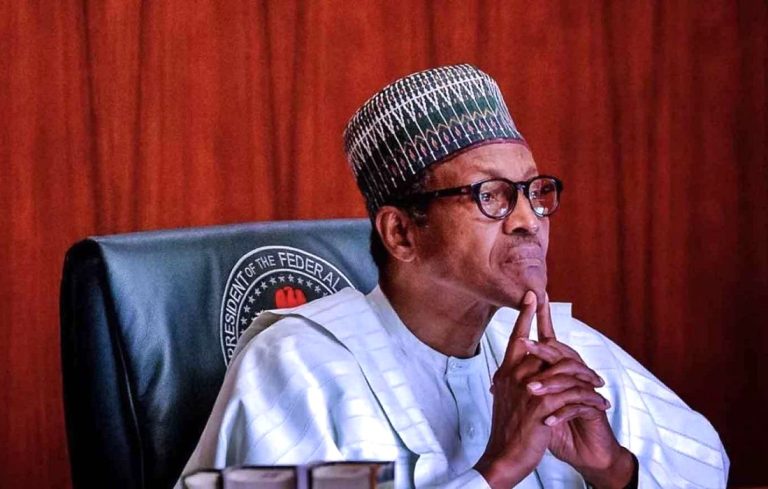





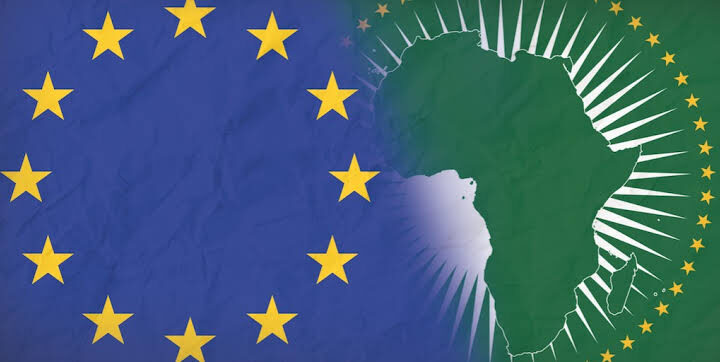




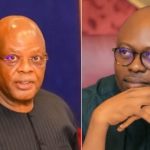


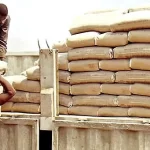
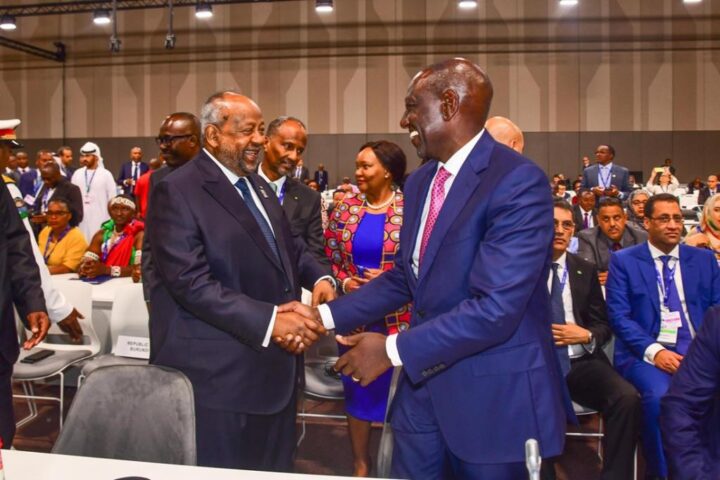
![Gender Activism An Economic Necessity In Africa [PBA Editorial]](https://www.primebusiness.africa/wp-content/uploads/2023/11/vaw-720x480.png)
Follow Us